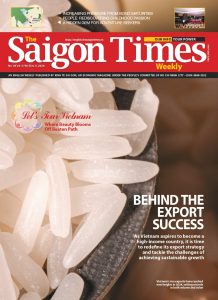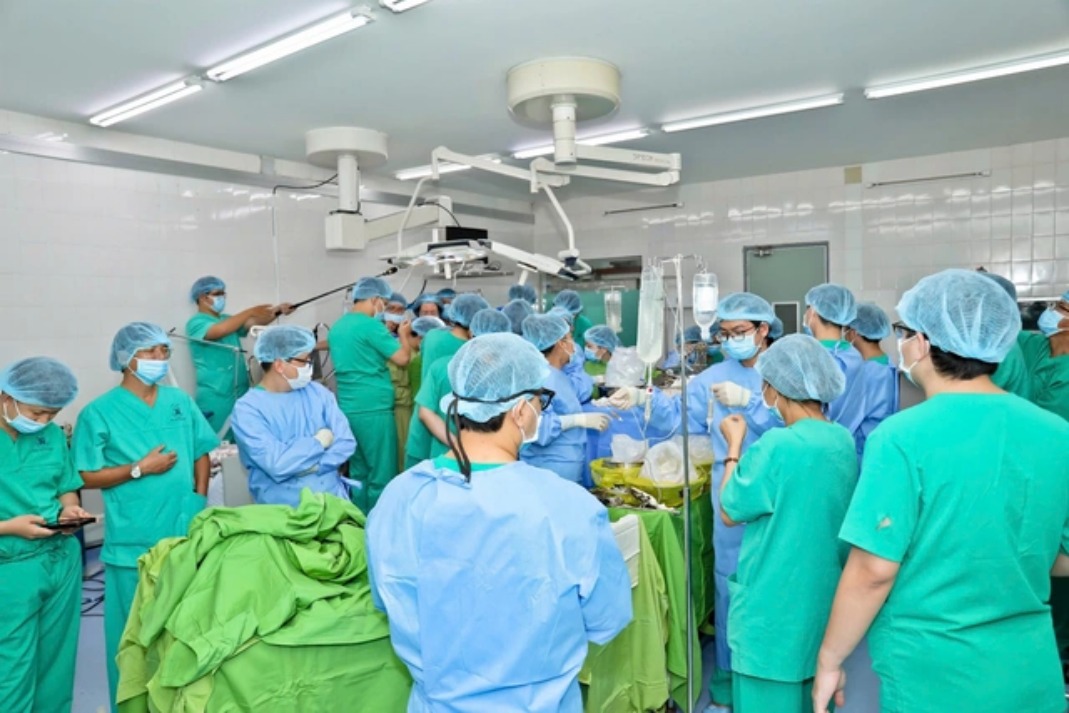An 18-year-old from An Giang Province in southern Vietnam, who was declared brain-dead due to a traumatic brain injury, has donated his organs to save seven lives, reported the vov.vn.
The patient was admitted to having severe brain injuries, including brain contusion and subdural hematoma. Despite emergency care and surgery, his condition worsened, leading to brain death. After consultation with doctors, his family agreed to donate his organs.
On November 24, a team of doctors from multiple hospitals and units retrieved organs. The seven organs were successfully transplanted into recipients in need.
Two kidneys were transplanted at Thong Nhat Hospital, while a liver segment was given to a patient at the University Medical Center HCMC. The Vietnam-Germany Friendship Hospital in Hanoi received a heart and part of a liver, and two corneas were used to restore vision for patients at Hue Central Hospital in Thua Thien-Hue Province. The organ transplant recipients were showing good health progress.
Hue has new national intangible cultural heritage
The “Knowledge of Tailoring and Wearing Hue Ao Dai” was recognized as a national intangible cultural heritage by the Ministry of Culture, Sports and Tourism on August 9 this year. On November 23, the Department of Culture and Sports of Thua Thien-Hue Province held a ceremony at the province’s Culture-Cinematography Center to welcome the title.
According to the Thua Thien-Hue Department of Culture and Sports, in 1744, Lord Nguyen Phuc Khoat decided to make ao dai (traditional Vietnamese long dress) the main attire for people in Dang Trong (Vietnam’s southern region). From 1826 to 1837, King Minh Mang was determined to turn ao dai into the national attire for all the people throughout the country.
According to Saigon Tiep Thi Online, Hue’s ao dai is said to be uniquely different from the dresses in other regions of the country because it has been formed and developed on the cultural foundation of the land that was once the capital of the Nguyen Dynasty – the last monarchy of Vietnam. The harmony of the aesthetic of royal costumes and the beauty of traditional attires has given rise to the second-to-none uniqueness of the ao dai made in Hue, the ancient capital.
A farm with a free library for readers
Huynh Thanh Hung, who lives in Long Thanh Commune, Giong Rieng District, Kien Giang Province, spent billions of dong turning his six-hectare land into a farm – Doctor Farm – with exclusive areas for an old house, rice and grape cultivation areas, fish ponds, and cajuput gardens. It is worth noting that he has built a library and a free reading space for students.
Hung told tuoitre.vn that he opened the library as a place for students to read books or draw paintings, thus helping them stay away from playing online games in their spare time. The reading space has become a venue for students, especially on Saturdays and Sundays. Phan Thi Pho, a volunteer, takes charge of managing the library and helping the students in their learning.
Hung, a doctor, could only arrive at the farm every weekend with his family. On this occasion, they often offered free meals for the students visiting the library. He said he would build a swimming pool and hire trainers to teach swimming for local students to prevent drowning.
A wedding decorated with vegetables and fruits
 At a wedding ceremony held in Phu Cat District, Binh Dinh Province, on November 20, Hoang Minh Hoa, the groom, handed over a bouquet made of papaya flowers to Hong Nga, the bride, and the couple crossed the wedding gate made of coconut leaves to enter the wedding hall decorated with fresh vegetables and coconut fruits.
At a wedding ceremony held in Phu Cat District, Binh Dinh Province, on November 20, Hoang Minh Hoa, the groom, handed over a bouquet made of papaya flowers to Hong Nga, the bride, and the couple crossed the wedding gate made of coconut leaves to enter the wedding hall decorated with fresh vegetables and coconut fruits.
After the bride and groom planted a coconut palm tree, instead of cutting a cake to start the ceremony, guests raised glasses of coconut water to toast the couple. Partygoers then enjoyed steamed sweet potatoes, cassava tubers, coconut water mixed with kumquat juice, and mung bean cakes.
Hoa told vnexpress.net that he spent some VND10 million buying one ton of potatoes, cauliflowers, bell peppers and carrots from Dalat to decorate the wedding hall and then presented them to guests. About 1,000 coconut fruits were ready to be served as drinks for guests instead of alcoholic beverages.
As a photographer, the groom also took photos of the wedding. He would present the photos to guests as thank-you gifts. The couple’s wedding went viral on social media these days.









